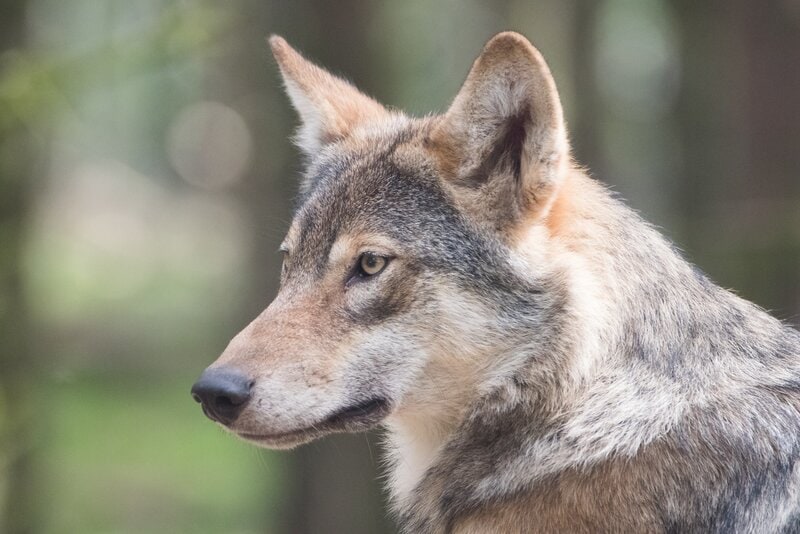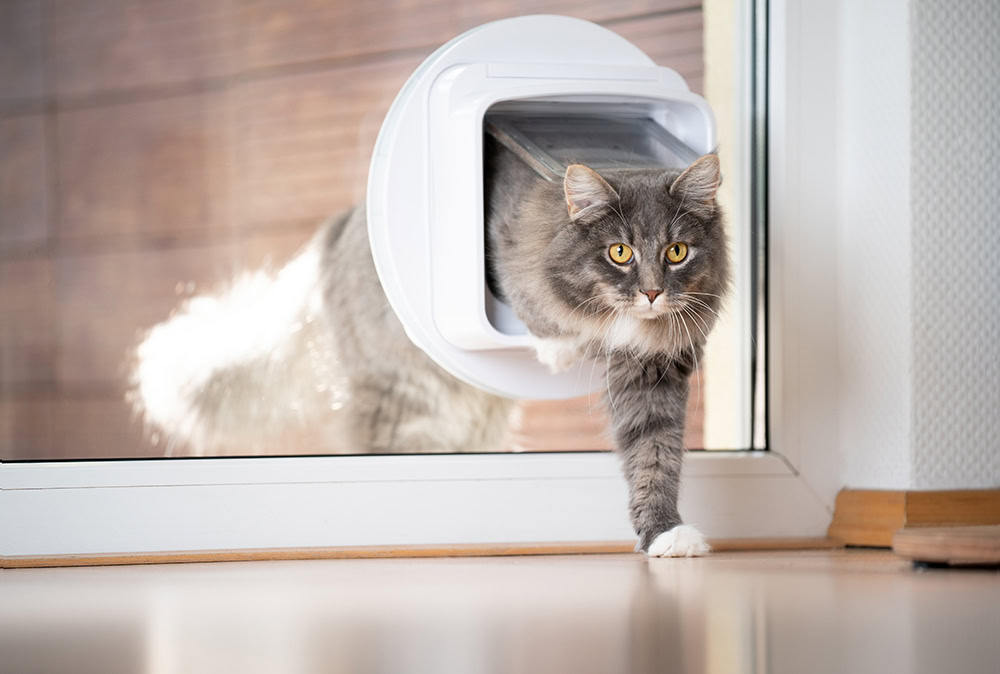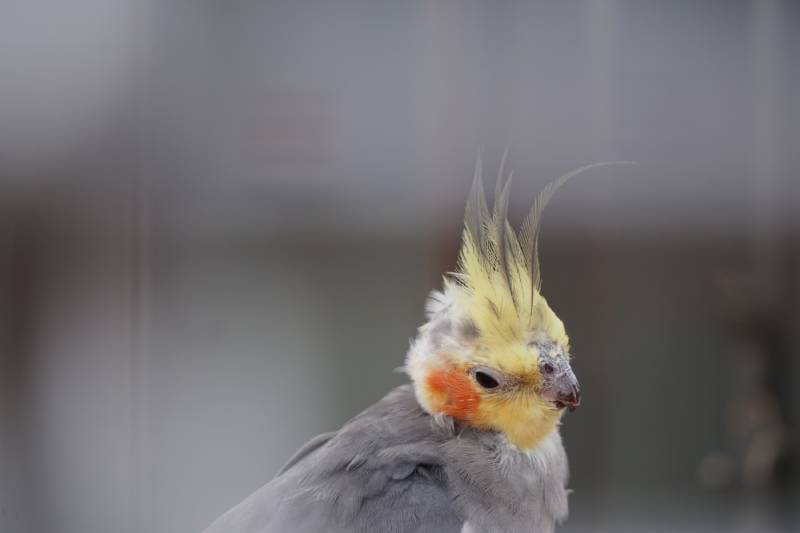VET APPROVED

The information is current and up-to-date in accordance with the latest veterinarian research.
Learn more »Click to Skip Ahead
As an animal lover, it’s easy to see yourself owning any type of cute animal you come across. Of course, that doesn’t mean that what you envision is always a good idea! In many cases, though cute, wolves would make terrible pets and are not suitable for domestic living.
There’s little doubt; wolf puppies are adorable. Dog puppies are cute enough, but wolf puppies take cuteness to another level. Plus, wolves are strong, mysterious, and wild creatures. Stories abound of people being brought up as part of a wolf pack, and many children will claim the wolf as their favorite animal.
All of this adds up to the wolf being a commonly desired pet. Many people fantasize and daydream about one day keeping a wolf as their companion. But the realities of wolf ownership are far different than the dreams you might have about it. Let’s talk about what it’s really like to keep a wolf for a pet, and whether that’s a good idea or not.
Important note: PangoVet does not endorse or encourage the keeping of wild, exotic, protected, endangered, or otherwise threatened animals as pets. This article is for informative purposes only.

What Qualifies as a Wolf?
In the U.S., owning a pure wolf is heavily regulated and often prohibited. However, a wolf doesn’t need much dog in it to be considered a wolfdog, and these animals fall into a separate legal category. Most of the time, when you hear someone talk about keeping a wolf as a pet, they mean a wolf-dog that’s a hybrid from a dog and a wolf.
It’s important to note that the classification of an animal as a wolfdog doesn’t necessarily depend on its exact percentage of wolf ancestry. Some jurisdictions consider any animal with recent wolf lineage as a wolfdog, regardless of the proportion. This means that even low-percentage hybrids can be subject to the same regulations as higher-percentage ones.
Becoming a Wolf’s Pack
Many people think their dogs consider them to be part of a pack, but things are a bit different with wolves. Wolf puppies are born unable to see and hear. When their eyes open and they see their first sights and hear their first sounds, the first creatures they see become their pack, their entire world, and all they know. That’s a massive responsibility; especially when you’re talking about an animal with wild instincts, rather than the tendencies that domesticated animals like dogs have developed over centuries of living alongside humans.
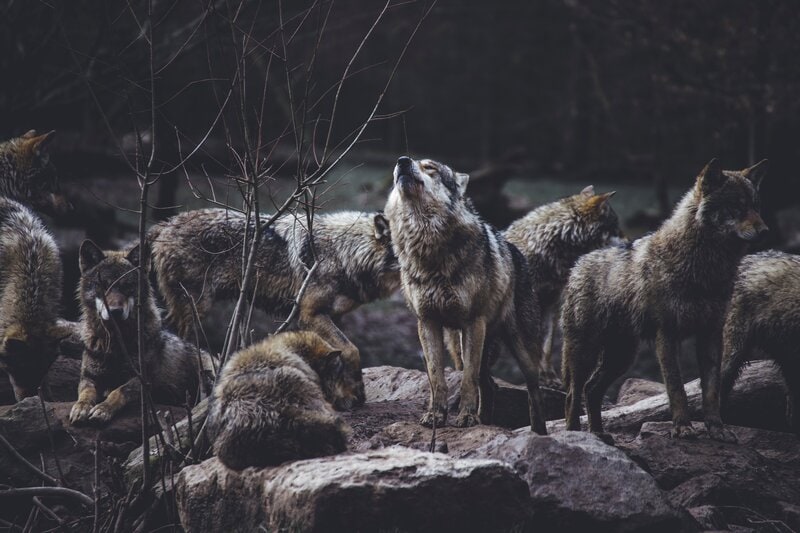
A Full-Time Commitment
Any pet is a major commitment. When you get a pet, you’re responsible for everything that pet needs. Large dogs can be rather burdensome for this reason, requiring lots of food and ample space to run and exercise. But no dog needs nearly as much space as a wolf. While dogs will benefit from large backyards, wolves require a good 10-15 square miles of space to stretch their legs!
Moreover, wolves need nearly constant attention. They’re very social creatures, and as their pack, you’re going to have to provide all the socialization your wolf needs. Plus, if you leave your wolf alone, you’ll be at risk of discovering something chewed up or destroyed, which is something you better get used to if you keep a wolf as a pet.
Sexual Maturity Brings the Problems
Wolves may appear similar to domestic dogs when they are young, but as they mature, their true wild nature becomes increasingly apparent. Around the time they reach sexual maturity, typically between one and two years of age, their behavior often shifts dramatically, and not in ways compatible with a home environment.
At this stage, wolves can become unpredictable, territorial, and even aggressive, especially in the presence of other animals. Their instincts are powerful and deeply ingrained; for example, the presence of female dogs can lead to intense agitation or dominance behaviors, regardless of whether the wolf has been neutered.
Additionally, wolves could develop destructive behaviors during this time. Wolves are driven to chew, scratch, and dig. They may also mark their territory more frequently and use strong-smelling urine in large quantities. This is not a manageable version of what dog owners are used to — it’s a fundamental expression of their wild biology.
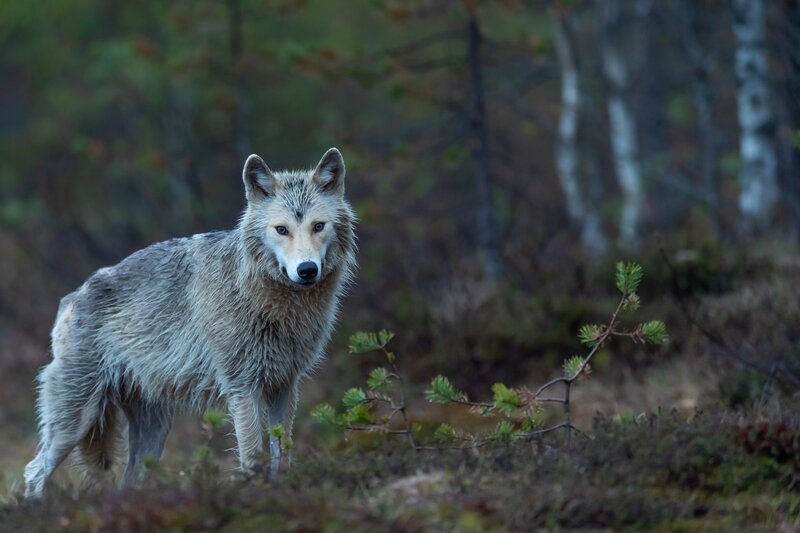
The Legality of Keeping a Wolf and a Wolfdog as a Pet
As mentioned, owning a pure wolf is heavily regulated in the U.S. However, there’s some more room for hybrid animals. That doesn’t mean you can go out and get a wolfdog today as a pet.
Each state and territory has its own laws regarding the ownership of wolfdogs. Some states, such as Pennsylvania, New York, and Minnesota have outright banned such pets; while others such as Indiana, Virginia, and Delaware impose strict regulations, such as requiring a permit. In many states, wolfdog ownership is legal though, so you’ll have to use your own common sense to determine if it’s really a path that you wish to take.
Dangerous Pets
The obvious reasons why many places have banned the ownership of wolfdogs are safety and ethics. Wolves don’t have the same instincts as dogs. They have predatory instincts that can’t be bred out in a few generations. Even if your wolfdog loves you and won’t attack you, it could attack other people. Wolves are far more aggressive than dogs, and they display territorial behavior that could lead to attacks. Not even members of the household are safe. Some wolfdog owners have discovered that their wolves became aggressive towards them in certain circumstances, despite a lifetime of companionship. Remember, these are wild animals, even if a bit of dog DNA has been mixed in with the wild wolf genes.

Wolves Make Terrible Pets
Wolves are incredibly awesome and majestic animals, but they can’t be kept as pets. Though they may look somewhat similar to dogs, they are different species and their wild nature makes them unsuitable for a domestic environment. Dogs have been evolving alongside humans as our companions and friends for thousands of years. Wolves, on the other hand, have been hunting and killing that whole time without any thought of partnering with humans. They haven’t developed any of the tendencies that dogs have due to their domestication. As a result, wolves can be dangerous pets, for their owners as well as other people. They’re territorial, often aggressive, and a liability for any owner. Depending on where you live in the U.S., though, you could legally own a wolfdog, however, you need to rely on your own common sense to decide if it is truly the right pet for you.
You may also be interested in:
- Can You Have a Fox as a Pet? Here’s What You Need to Know!
- Do Monkeys Make Good Pets? (Ethics, Care, & that to Know)
Featured Image Credit: M. Zonderling on Unsplash
